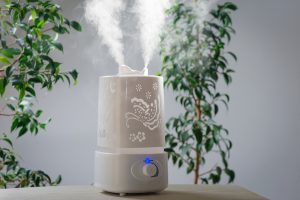Is Keeping The Heater On At Night Bad for My Sinuses
It’s comforting to be inside a warm home when the weather turns cold. That is why you ensure that your heating system is properly maintained before winter. Central heating offers plenty of benefits on chilly days and nights. It is all right to have a warm home, but when the rooms become airless, dry, and hot, the situation places your health at risk. It brings us to a pressing question, "can a dry house cause problems for our sinuses?"
The answer to the question is YES! We’ll talk about it lengthily before we tackle the ways on how to avoid dry air at home.
Can A Dry House Cause Sinus Problems
Humans’ need for warmth differs. Some people are fine with higher temperatures, while others want the temperature to be a bit lower, even if it is cold outside. Some like the idea of snuggling under a blanket, while some like to wear thick clothing while sitting in front of a fire.
Central heating keeps the entire house warm, although there are some reasons why you feel ill when the central heating is turned on for a long time.
Scientifically, the air becomes dry when the weather is cold. The colder it gets, the more moisture leaves the air through condensation. Outside, the colder air could be heated and still hold moisture because of the moist earth, grass, trees, and sunlight.
 But inside a house, there are limited, if any, sources of moisture during the colder months. The cold air that enters your home has very little humidity. When you turn up the heat to dispel the cold, the moisture from the air evaporates. The central heating system comes in bursts, so whatever moisture is available dissipates before the dry and heated air reaches your still-moist sinuses. Whatever moisture is left on your sinuses evaporates as you breathe. This explains why a dry house can cause sinus problems.
But inside a house, there are limited, if any, sources of moisture during the colder months. The cold air that enters your home has very little humidity. When you turn up the heat to dispel the cold, the moisture from the air evaporates. The central heating system comes in bursts, so whatever moisture is available dissipates before the dry and heated air reaches your still-moist sinuses. Whatever moisture is left on your sinuses evaporates as you breathe. This explains why a dry house can cause sinus problems.
Moist mucous and nose hair are there to trap the dust that you inhale so it will not reach your lungs. However, when the heated and dry air is inhaled, it will harden the mucus, making your nasal passages parched.
If the central heating is not properly maintained, cranking up the thermostat will circulate dust, allergens, and pollens that can make your sinuses swell. These pollutants can also irritate your airways. Dry and cold air can cause the narrowing of breathing passages, which can lead to an asthma attack.
Therefore, leaving a heater on during the day and at night will be bad as a dry house can cause sinus problems, especially if you remain cooped up inside your home the entire day.
Solutions
Even if a dry house can cause problems with sinuses, there are also some solutions to ensure that you’ll have moist air even if you have the heater on.
- Invest in house plants. Plants release water through their leaves. They will help moisturize the air inside your house. Check with your local nursery to know which plants will thrive beautifully indoors.
- Keep the temperature even for all rooms. It will help everyone, particularly those with heart problems. The ideal temperature is about 18 °C or 64.4 °F.
- Lessen your worry that your dry house can cause sinus problems for you and your family by investing in humidifiers. If your house becomes excessively dry when you have to use your central heating, not only your sinuses will be affected. Your lungs’ surface membranes will dry a little as well, which promotes respiratory infections. Getting a humidifier will help increase a room’s moisture level. You can either get a central humidifier or install a portable one in each room that you frequently use.
These are the more general solutions if a dry house causes problems with sinuses. You can also drink plenty of fluids. One other thing is to minimize pollutants from circulating in your home when the central heating is on. Contact Fischer Heating to have your central heating vacuumed and maintained regularly.
Contact Fischer Heating for any additional questions you may have, or give us a call today at 206-202-9499. to schedule a trained and licensed HVAC technician to look over your heating system.
